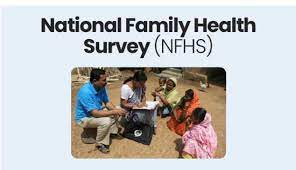Making disability count: On why NFHS will yield more robust data on the disability sector
Including disability in the NHFS-6 will serve the government well
The significance of data in influencing policy constructs and thereon, decisions, is non-contestable. The country takes periodic stock of various parameters just to inform welfare policies better. In context, the recent decision of the Union government to drop the disability-specific question from the National Family Health Survey (NFHS)-6 seems churlish and sends out wrong signals. After years of campaigning for the same, activists rejoiced when the government added one question on disability in the NFHS-5, and were hopeful that this would be built upon in subsequent versions of the nation-wide survey. The deletion, and reluctance to map the minutiae that will help understand their lives and needs better, leaves the question: is the government serious about its commitment to the disabled in the country, who number, as per the 2011 Census, about 2.68 crore? The Ministry of Health and Family responded that questions about disability were already asked as part of the Sample Registration Survey (SRS) 76th round, conducted between July and December 2018, and that any specific information can be tabulated from the raw data, which is also available in the public domain. It has also gone on record stating that disability data will ‘not change fast’. That might be an erroneous supposition.
While gross data on disabilities will change marginally (but still be substantial given the numbers), the count of 6.1 lakh sample households that the NFHS relies on will make the data set truly representative. The elaborate questions asked by the NFHS will provide valuable specifics on the lives of the disabled; something on that scale hitherto conspicuous by its absence. While the SRS does a good job with marking the prevalence and incidence of disability, education level, living arrangements, care-givers, certificate of disability, accessibility and unemployment rate, among others, the NFHS asks more comprehensive questions. It seeks answers on health and nutrition status, access to health schemes, insurance, sexual behaviour, availability of family planning, use of contraception, domestic violence, household amenities and possessions, lifestyle indicators, and access to drinking water and toilets. There is no doubt that the latter will yield better, more robust, data on the disability sector. While Health Ministry officials claim that the sole NFHS question on disability too resulted in under-reporting, that might actually be a function of training for field staff who ask the questions. The state must employ these efforts — adding questions on disabilities, training field staff, because nothing really justifies any attempt to keep a significant section out of a massive-scale count of the Indian population.
